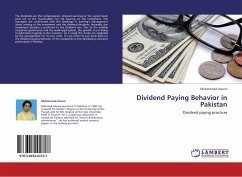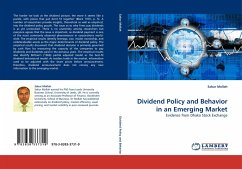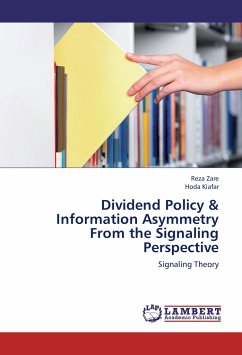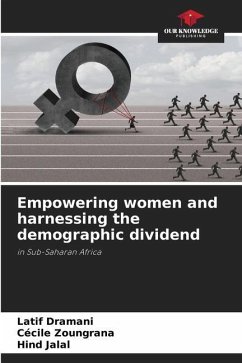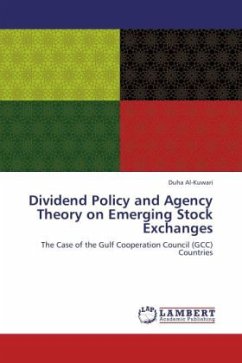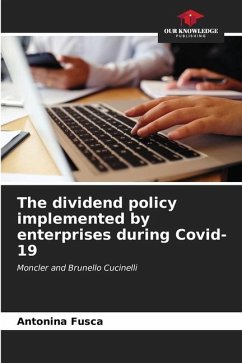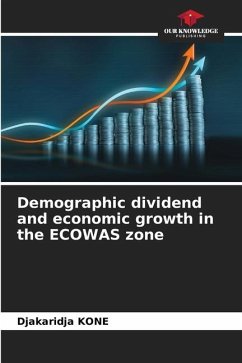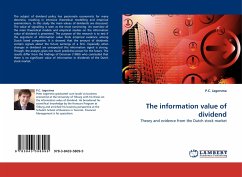
The information value of dividend
Theory and evidence from the Dutch stock market
Versandkostenfrei!
Versandfertig in 6-10 Tagen
32,99 €
inkl. MwSt.

PAYBACK Punkte
16 °P sammeln!
The subject of dividend policy has passionate economists for many decennia, resulting in intensive theoretical modelling and empirical examinations. In this study the main values of dividends are discussed. The value of signalling is seen as the most convincing. An overview of the main theoretical models and empirical studies on the information value of dividend is presented. The purpose of the research is to test if the argument of information value finds empirical evidence among Dutch listed companies. It is showed that the amount of dividends contain signals about the future earnings of a f...
The subject of dividend policy has passionate economists for many decennia, resulting in intensive theoretical modelling and empirical examinations. In this study the main values of dividends are discussed. The value of signalling is seen as the most convincing. An overview of the main theoretical models and empirical studies on the information value of dividend is presented. The purpose of the research is to test if the argument of information value finds empirical evidence among Dutch listed companies. It is showed that the amount of dividends contain signals about the future earnings of a firm. Especially when changes in dividend are unexpected this information signal is strong. Though, the analysis gives not much predictive power for the future. The results differ from the findings of Dorsman (1988) who concluded that there is no significant value of information in dividends of the Dutch stock market.





